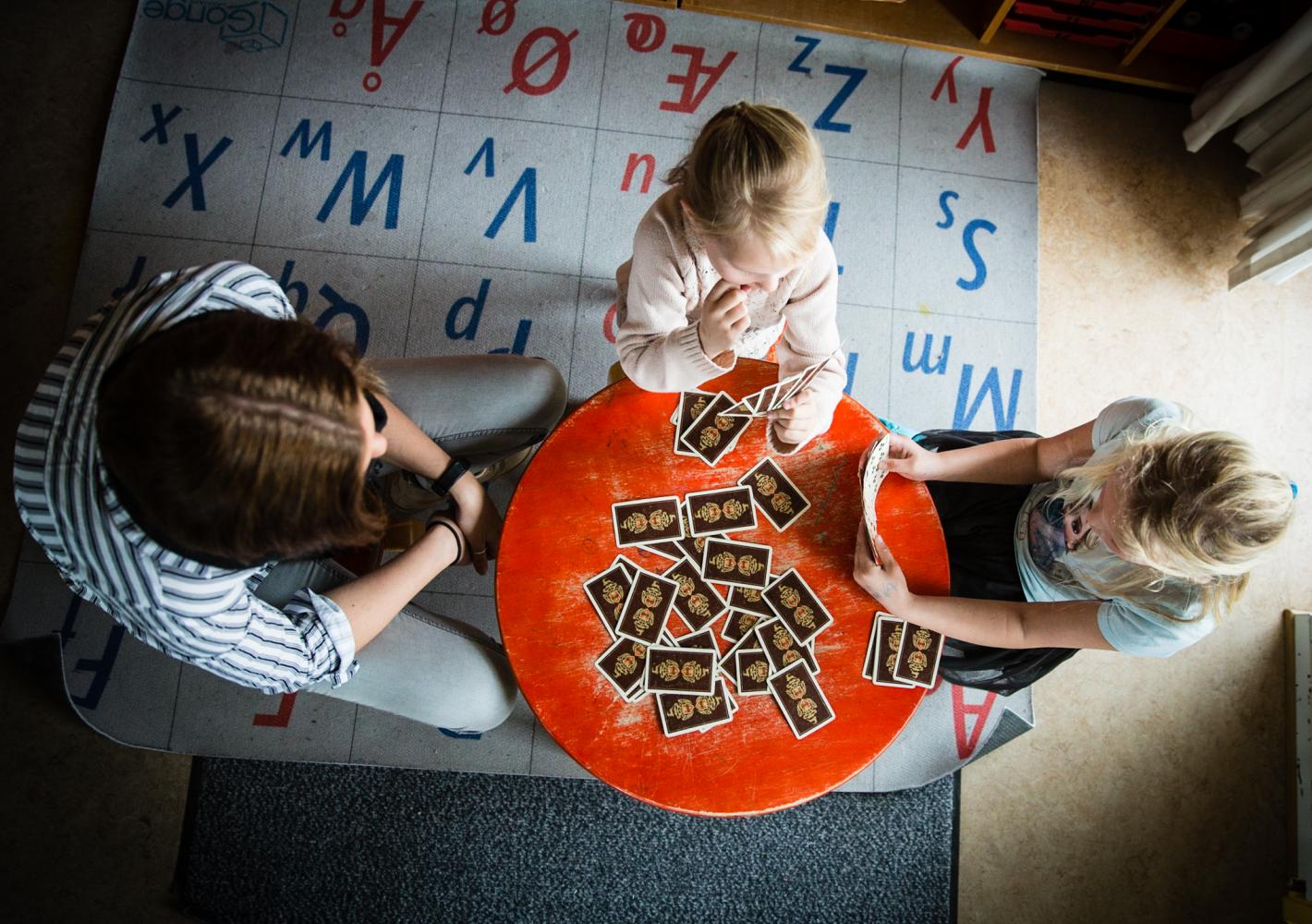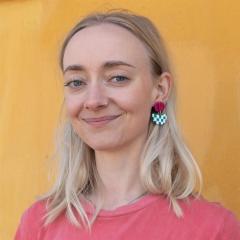

Disclaimer: will not be offered in 2025. We are sorry for the inconvenience.
The Children at Risk programme offers knowledge about important theory, methods and ethics related to professional pedagogical work with children, youth and families at risk.
Information about the programme
For the 18th time in a row, University College Absalon offers ‘Children at Risk’ (CaR) at Campus Vordingborg. This international 30 ECTS BA-level programme offers knowledge about important theory, methods and ethics related to professional pedagogical work with children, youth and families at risk. In addition, includes field-visits to various Danish institutions in and around Copenhagen as well as the region of Zealand. An enrolled student gains a variety of professional benefits as well as personal benefits by experiencing, living and studying abroad.
As a student in this programme you will have great opportunity to influence your learning, so you will be able to work with what interests you the most.
Participants
For Children at Risk 2024 we accept Danish and international students from teaching, pedagogy, social work, social counseling or related bachelor-level programmes. We give high priority to the diversity of the group. It is preferable - but not mandatory - that the students have had some practical experience with professional pedagogical work before attending the course.
The working language is English, which requires students are capable at reading, writing and expressing themselves in English
Content
-
Introduction week to Denmark and Danish pedagogy
During this week, you will meet your class, classmates and teachers. There will be various activities introducing you to Denmark, your fellow students and the town of Vordingborg.
In addition, you will learn about Danish society, the educational system, professional educational work in day care institutions and schools finishing with a field-visit to a Danish day care institution meeting professionals and children.
Learning goals during the first week:
- Knowledge about Denmark, the Danish people and Danish society
- Knowledge about the Danish educational system and the social education
- Knowledge about Danish pedagogical, psychological and relational theories
- Firsthand knowledge from field-visits to Danish day care institutions
-
Module 1: Interdisciplinary work and professional communication
Module programme:
10 ECTS-credits
The module's placement:
Interdisciplinary international module at ABSALON, Campus Vordingborg. (Tværprofessionelt modul)
Studerende der er indskrevet på den ordinære uddannelse kan tage modulet som 6. etape af uddannelsen.
- An interdisciplinary international module with students from e.g. Denmark, Europe, North America and Asia studying various areas related to pedagogy, teaching and social work
- The module is an integrated part of the international program Children at Risk
- The teaching and working language in this course is English.
Content
During this module, you will learn about interdisciplinary collaboration in teams concerning children and juveniles at risk. You will acquire knowledge about interdisciplinary work, cultures, inclusion, ethics, professional approaches and communication. In addition, you will be working with cultural analysis, empowerment and methods as well as going on field-visits to different Danish institutions.
Competence goals
- You can identify, analyze and reflect on interdisciplinary and inter-sectoral dilemmas and potentials, and reflect on how to engage in, coordinate and lead holistic and inter-collaborative processes.
Learning goals
- You have knowledge about and can reflect on collaborative and management approaches in an interdisciplinary perspective.
- You have knowledge about and can reflect on the coordination of efforts to promote inclusion, well-being and health with other professions based on your own professionalism and focusing on user involvement and holistic action.
- You have understanding about ethical dilemmas, diversities in cultures and identities and can reflect upon their usefulness in professional work.
- You gain knowledge, understanding and can reflect on theories and methodological approaches, including research and development-based knowledge.
Module evaluation
The module content, organization and your own learning process are assessed at the end of the module. Your learning outcomes are assessed at the subsequent examination within the area of competence.
Assessment and examination
he module exam is a group based presentation which combines oral, written and practical parts with a discussion and reflection of the chosen problem.Student assessment is individual according to the European standard ECTS grading scale with internal examination.
-
Module 2: Professional work with children and youth at risk
Module programme
10 ECTS-credits
The module's placement
International module at ABSALON, Campus Vordingborg.
- An interdisciplinary international module with students from e.g. Europe, North America and Asia studying various areas related to pedagogy, teaching and social work.
- The module is an integrated part of the international program Children at Risk.
- The teaching and working language on this course is English.
Content
In module 2, you work with a focus on knowledge, skills, independence and multi-perspectives, that are central to professional work. You will learn about children at risk online and risks, abuse and risk factors with children, attachment theory and different practical methods. There will be art based activities and methods as well as field visits to different Danish institutions. E.g., CaR students have chosen to work with sexual abuse, violence against children, differentiated teaching, criminals, and unaccompanied refugee children, children with various impairments, inclusion, anxiety and juveniles at risk".
Competence goals
- You can identify and reflect professionally about professional efforts and activities aimed at promoting well-being and quality of life, supporting the target group’s development, learning processes and participation in communities.
Learning goals
- You have knowledge about changes in the view of children and youth at risk - and you can explain, analyze and deal with social and special pedagogical practice.
- You can identify challenges and support opportunities in social and special education work with a specific target group
- You can act professionally in terms of opportunities and prerequisites with the target group
- You can design and evaluate professional efforts and processes that promote well-being, development, quality of life and participation
Module evaluation
The module content, organization and your own learning process are assessed at the end of the module. Your learning outcomes are assessed at the subsequent examination within the area of competence.
Assessment and evaluation:
The module exam is a group based presentation which combines oral, written and practical parts with a discussion and reflection of the chosen problem. Student assessment is individual according to the ECTS grading scale.
-
Module 3: Social pedagogical research and field studies
Social pedagogical research and field studies
Module programme
10 ECTS-credits
The module's placement
International module at ABSALON, Campus Vordingborg.
- An interdisciplinary international module with students from e.g. Europe, North America and Asia studying various areas related to pedagogy, teaching and social work.
- The module is an integrated part of the international program Children at Risk.
- The teaching and working language on this course is English.
Content
In module 3, you will work on a problem and solution oriented group project incorporating and working with many of the same components, which typically apply to a Bachelor thesis. During this module, you will continue to develop your academic knowledge, skills and independence. You will work with philosophy of science, scientific methods, and ethics while going on field-visits to a Danish institution.
Competence goals
- You can identify, investigate, develop and perspectivate pedagogical issues.
Learning goals
- You have knowledge about professional practice in Denmark.
- You can explain, analyze and deal with social and special pedagogical practice from a historical perspective.
- You can apply research-based knowledge in analyzes and assessments that support development, learning and living conditions among children and youth at risk.
- You can develop social and special pedagogical practices dealing with professional ethics in relation to own and others' studies of professional pedagogical practice.
- You can plan and manage projects.
Module evaluation
The module content, organization and your own learning process are assessed at the end of the module. Your learning outcomes are assessed at the subsequent examination within the area of competence.
Assessment and evaluation
The module exam is a problem based group project which combines oral, written and practical parts with a discussion and reflection of the chosen problem. Student assessment is individual according to the ECTS grading scale.
Practical information
-
Study calendar
More information will be available shortly
-
Assessment
1. Interdisciplinary work and professional communication
The module exam is a group based presentation which combines oral, written and practical parts with a discussion and reflection of the chosen problem.Student assessment is individual according to the European standard ECTS grading scale with internal examination.
2. Professional work with children and youth at risk
The module exam is a group based presentation which combines oral, written and practical parts with a discussion and reflection of the chosen problem. Student assessment is individual according to the ECTS grading scale.
3. Social pedagogical research and field studies
The module exam is a problem based group project which combines oral, written and practical parts with a discussion and reflection of the chosen problem. Student assessment is individual according to the ECTS grading scale.
During all study project periods and exams, the students receive support from a team of teachers and specific guidelines.
-
The Social Education at University College Absalon
The Children at Risk programme is part of the Social Education at University College Absalon, which has three core values:
- Democratic and active participation
- Individual and social responsibility
- High professionalism, pedagogical competence of action and innovation
These core values equip you to work with people who need your support and guidance in everyday life and in institutions.
The interaction between theory and practice
The Children at Risk programme provides you with a theoretical and practical foundation in working with children and youth at risk. Students on this programme gain a variety of knowledge and skills in working with human relations and various kinds of action within the professional field of work. During this course, you will experience various challenges professionally, socially and personally, since we expect your active and committing participation in the programme's teaching and professional communities as well as you having the courage to challenge yourself during this process.
An average weekly 40 hour study load
The Children at Risk program is in accordance with the Danish University College ‘Study Activity Model’ with an average weekly 40-hour study load.
You will meet and work with fellow students from many countries, of different ages and with different professional and human backgrounds. Therefore, you are to be able to work in groups and are committed to this form of collaboration during your study, since it is an important teaching method. Other teaching methods consist of classes with teacher and student presentations along with various practical exercises, both individual and group based tasks and assignments before, during or after classes, lots of field visits, supervision, feedback and feed forward from teachers and fellow students.
Please note: You must expect expenses for field-visits, teambuilding and other social activities as well as the goodbye party dinner. The Children at Risk programme will contribute financially to some of these field-visits, events and activities along the way.
-
Activities
Students can use the facilities on Campus such as cafeteria, sport, music and drama rooms for free, if vacant. Absalon cooperates with various students’ organizations enabling a wider contact with other Danish and international students. If you would like to learn some Danish, we may also arrange for that.
Housing
Please note, that University College Absalon does not offer housing for exchange students. It is therefore the student's own responsibility to find accommodation.
Read more about finding accommodation in Denmark here.
